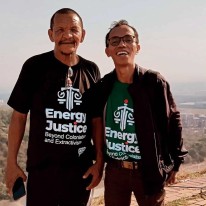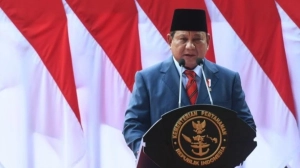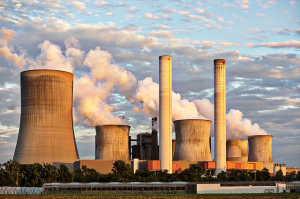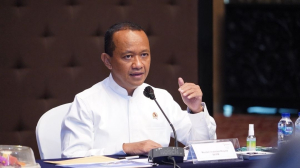Banks asked to halt funding for Harita Group over environmental damages incurred
Environmental and human rights advocacy groups have urged banks to cease financial support for mining Harita Group of companies, citing severe environmental and social damages caused by its extractive businesses.
The call was made during a discussion and photo exhibition organized by the Mining Advocacy Network (Jatam), along with Market Forces and Sawit Watch, in Jakarta on Monday, March 25, 2025. The event was aimed at raising public awareness about the destructive impact of Harita Group’s operations of mining, palm oil plantations and timber industries.
Jatam Coordinator Melky Nahar highlighted the environmental degradation caused by Harita’s subsidiaries, particularly in nickel mining. Meanwhile, Bony of Sawit Watch emphasized the deforestation and criminalization associated with Harita’s palm oil business.
Binbin Mariana, Asia Energy Finance Campaigner at Market Forces, underscored the rising coal consumption to power Harita’s nickel smelters in Obi, North Maluku, questioning its eligibility for financing under sustainable banking commitments.
Two residents of Wawonii Island, Amlia and Hastoma, also shared their grievances.
“Our water sources are destroyed. We now have to buy water, and our income has drastically decreased,” Amlia sais as quoted in a statement on Tuesday March 25, 2025.
Hastoma added that intimidation and criminalization continue to affect their community.
As part of the advocacy efforts, residents of Wawonii and Kawasi would deliver letters to representatives of three banks in Indonesia − OCBC Bank, UOB Bank and State-owned Bank Mandiri − which have provided financing for Harita Group on March 25-26, 2025.
Harita Group, one of Indonesia’s largest conglomerates, has built its wealth − estimated at US$1.1 billion in 2022 − through extensive resource extraction.
However, activists argue that its operations have led to deforestation, pollution, and the displacement of local communities. Investigations have also linked Harita’s nickel mining in Obi Island, North Maluku to hazardous heavy metal contamination in water sources, surpassing safety thresholds set by the World Health Organization (WHO) and Indonesia’s Ministry of Health.
Furthermore, reports indicate that Harita’s nickel smelters emitted 7.98 MtCO2e greenhouse gases in 2023, accounting for approximately 1 percent of Indonesia’s total emissions that year. This figure is equivalent to the emissions from 1.8 million four-wheeled vehicles.
In Wawonii, operations by Harita’s subsidiary PT Gema Kreasi Perdana (GKP) have allegedly polluted key water sources, forcing communities to seek alternatives from distant villages. In Kalimantan, Harita’s palm oil plantations have also been linked to deforestation and contamination of critical water bodies, endangering both biodiversity and local livelihoods.
Beyond environmental destruction, Harita has faced legal challenges. The company has been accused of violating regulations on small island mining and defying a Supreme Court ruling favoring Wawonii residents. It has also been implicated in criminalizing 44 local activists in Wawonii, with additional cases reported in its palm oil sector.
The advocacy groups demand that banks align their financing with sustainability commitments and withdraw from projects that contribute to environmental and human rights violations.
The management of Harita Group has yet to issue official statement when Indonesia Business Post requested for comment on the matter on Tuesday afternoon, March 25, 2025.
Already have an account? Sign In
-
Start reading
Freemium
-
Monthly Subscription
20% OFF$29.75
$37.19/MonthCancel anytime
This offer is open to all new subscribers!
Subscribe now -
Yearly Subscription
33% OFF$228.13
$340.5/YearCancel anytime
This offer is open to all new subscribers!
Subscribe now







